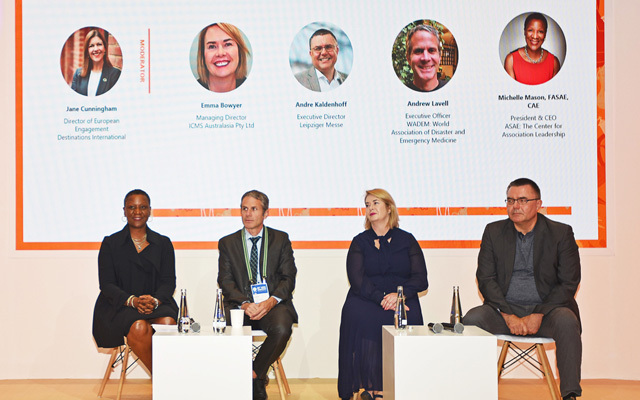
In reaction to headline-grabbing political, societal, safety and other destination developments, international event clients are posing “painful questions” to their partners and suppliers, where answers could impact their decision on where to take their events next.
Speakers at the Navigating External Influences panel discussion on October 21 at the 63rd ICCA Congress in Abu Dhabi acknowledged an increasingly complicated world, and offered the audience advice and solutions that ranged from raising awareness, taking a stand on values, being transparent, and the importance of open and transparent communication right from the start.

Andre Kaldenghoff, executive director, Congress Centre Leipzig, who proposed the topic to ICCA for this year’s Congress, said his organisation has had to demonstrate the city’s values of openness, freedom of speech, and respect for the client’s supply chain restrictions.
Andrew Lavelle, executive officer, World Association for Disaster and Emergency Medicine, said strong internal discussion would have to take place for its biennial meetings if a controversial destination was being considered.
However, he stated that “health trumps politics”; accessibility and connectivity of the host city were equally important.
In working with international clients, Emma Bowyer, managing director, ICMS Australiasia, said marketing plans had to be culturally appropriate, citing the example of marketing on popular social media platform WeChat in China, relying on ambassador programmes in Japan, and collaborating with the industry in South Korea.
Michelle Mason, president and CEO, ASAE: The Center for Association Leadership, shared that key tools have been created to help its members make safe and effective decisions. These include a framework to guide objective decisions, societal impact statements, and a risk mitigation and crisis management roadmap.
Session moderator Jane Cunningham, director of European Engagement, Destination International, noted that “different associations have different visions”. In response, Kaldenghoff agreed that every association partnership has to start with identifying the “goals and vision, be as transparent as possible, and start early to listen and understand”.












